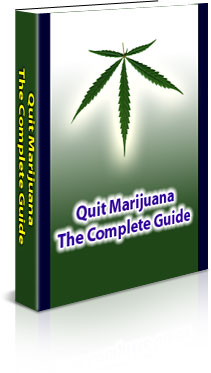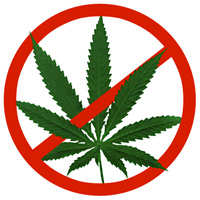- Top New Articles:
- 5 Steps To Quit Weed
- 50 Reasons to Quit Weed
- Coping With Withdrawals
- Health Effects of Weed
- Weed Affecting Family
- Post-Weed Depression
- Marijuana And Cancer
- Your Weed Lifestyle
- Quit Weed & Dream
- Addiction Of Weed
- Potency Of Weed Today
- Weed Detox Story

Quit Marijuana
The Complete Guide
QUIT WEED ARTICLES
ASK A QUESTION


Coping With Marijuana Withdrawals
When You Quit Weed
Are you a marijuana user struggling to quit?
Are you finally a believer that marijuana is, in fact, addictive?
If you think about it, the debate over whether or not marijuana is addictive is a silly one. All you need to do is point to the thousands of people trying to quit, which are now battling with the powerful cravings and other withdrawal symptoms associated with this mind-altering, perception-changing drug.
Quitting marijuana, much like quitting any addictive substance, is a difficult task, but it is not impossible. The trick to any successful quitting strategy lies in managing the often debilitating withdrawal symptoms that can make you want to pick up a joint.
Here we will discuss several strategies for effectively managing these withdrawal symptoms, but before we do let's first identify just what these symptoms are.
Marijuana Withdrawal Symptoms
The symptoms of marijuana withdrawal are usually the direct opposite to the effects of the drug when a person is using. Instead of being hungry, for example, you have no appetite, and instead of being drowsy you experience insomnia. Other symptoms include:
- Headache
- Anxiety
- Depression
- Irritability
- Aggression
The first couple of weeks after marijuana cessation are the most difficult, and consequently, the time period when cravings are the strongest. Unfortunately, these cravings can be so intense during this period that the success rate for quitting is extremely low.
Managing Marijuana Withdrawal
There are several strategies which you can employ to help you cope more effectively with marijuana withdrawal symptoms. Among them are:
Avoid temptation. If you truly want to quit your marijuana habit, you'll need to implement certain changes to your lifestyle. Try to avoid the people, places and circumstances in which you feel the temptation to smoke-at least until the craving to use has subsided.
Exercise. Exercise can have a twofold benefit for marijuana smokers trying to quit. First, exercise serves as a healthy distraction from the powerful and often overwhelming cravings. When you exercise, all your attention is focused on the activity, leaving no room for other thoughts and sensations. Second, exercise-especially running and other cardio routines-releases certain chemicals in the brain which produce a euphoric feeling, much like the one experienced when smoking pot. Often referred to as a "runner's high," this sensation can vastly reduce the frequency and severity of marijuana withdrawal symptoms.
Meditation and Yoga. When you're in the midst of marijuana withdrawal, every waking moment is usually spent thinking about the drug, but meditation and yoga can help combat this. Meditation and yoga, when performed correctly, teaches you to clear your mind and focus only on your breathing. In this relaxed state you should be free from all thoughts and anxieties. Both of these techniques-meditation and yoga-can be powerful tools for dealing with the debilitating effects of marijuana withdrawal.
Support Groups. While support groups may not be able to help you with the immediate physical withdrawals you are experiencing, they can help you to understand your symptoms more clearly and provide you with the support you need to continue on your "quitting journey."
Distraction. Sometimes all you need to deal with marijuana cravings is a healthy distraction. Try going to the movies or reading a good book. The longer you keep yourself distracted from the withdrawal effects, the better chance you have at quitting.
Quitting marijuana is not easy, but it is not impossible either. If you or someone you love is struggling with marijuana w ithdrawal, try implementing one (or several) of the methods mentioned above and see if that doesn't make the endeavor a little easier to bear.
What if you can't quit weed?
If you are having trouble quitting weed on your own, make sure to check out the famous quit weed guide. This course uses proven methods such as NLP, and other modern startegies including Natural Marijuana Detox, to help you quit weed easily on your own.